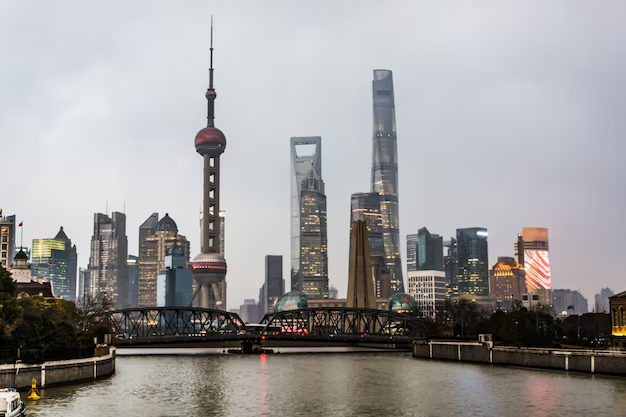Muscat International Airport has rolled out a new QR code payment system for parking, marking another step toward improving convenience for travelers. The newly introduced contactless solution aims to streamline the payment process, helping passengers avoid long queues at kiosks and eliminating the need for cash transactions. For those navigating the busy airport during peak travel times, this system promises a more efficient way to manage parking payments, allowing travelers to focus on their journeys rather than administrative tasks.
By simply scanning the QR code printed on their parking ticket with a mobile phone, users can pay for their parking in a matter of seconds. The system allows travelers to complete the transaction without waiting in line at traditional payment machines, offering a faster alternative that aligns with the growing trend of contactless technologies in the travel industry. For frequent travelers and business commuters, this time-saving option could significantly enhance their airport experience.
A Step Toward Contactless Travel
Muscat International Airport’s introduction of QR code payments is part of a broader movement within the travel industry toward contactless and digital solutions. With many airports around the world increasingly adopting such technologies, the goal is to improve passenger flow, reduce congestion, and ultimately offer a smoother, more pleasant experience for travelers.
The COVID-19 pandemic accelerated the demand for contactless services across various sectors, including airports, where minimizing physical contact became a priority. While the need for contactless solutions initially arose from health concerns, their efficiency and convenience have led to widespread adoption. For Muscat International Airport, this system reflects its commitment to integrating modern technology into its operations, making travel more convenient for passengers.
The introduction of QR code payments is just one example of how airports are responding to the needs of modern travelers, who increasingly expect faster and more seamless services. By minimizing the number of physical touchpoints during the airport experience, the new system also caters to passengers who prefer to use their smartphones for all aspects of their travel journey.
Time-Saving Benefits for Travelers
One of the key benefits of Muscat’s QR code payment system is the time-saving factor it offers travelers. Airports, particularly during busy periods, can be stressful environments where every minute counts. Whether travelers are rushing to catch a flight or juggling work commitments, spending extra time at parking payment kiosks can add unnecessary frustration to their experience.
The new system eliminates the need for passengers to search for cash or wait in long lines, allowing them to make payments instantly through their mobile devices. This added efficiency is expected to reduce congestion at parking lots, especially during peak times such as holidays, weekends, or major events.
For business travelers, who often rely on airports for quick transit and have tight schedules, this contactless system can make a significant difference in the overall travel experience. Saving even a few minutes in parking can streamline their entire journey, allowing them to focus on more important aspects of their trip.
Bullet Points:
QR code payment system enhances time efficiency during busy travel periods.
Contactless technology reduces congestion at parking payment kiosks.
Global Implications for the Travel Industry
The implementation of contactless technologies like QR code payment systems at Muscat International Airport underscores a growing global trend in the travel industry. Airports around the world are increasingly adopting tech-driven solutions to enhance passenger experiences, reduce physical touchpoints, and streamline services. These changes are shaping the future of travel by making processes faster, safer, and more convenient.
For international travelers, the introduction of such systems adds another layer of convenience, allowing them to move through airports more smoothly. It reflects a larger movement within the travel sector to prioritize digital and contactless solutions, providing travelers with quicker and more efficient services. Whether at check-in, boarding, or parking, these innovations are becoming essential to modern travel.
In addition, the trend toward contactless payment solutions may influence other areas of the travel industry, including hotels, rental car services, and even tourist attractions. As more travelers become accustomed to using QR codes and contactless payment options, they are likely to expect similar conveniences throughout their travel journey.
Looking Forward: Enhancing the Traveler Experience
The introduction of the QR code parking payment system at Muscat International Airport is a testament to the airport’s commitment to leveraging technology to enhance the traveler experience. As global travel rebounds, airports are under increasing pressure to offer streamlined, efficient services that cater to the needs of modern travelers.
Muscat’s move toward a more tech-forward approach is likely to set a precedent for other airports in the region and beyond. As the demand for quick, contactless services grows, more airports are expected to follow suit, adopting digital solutions that prioritize passenger convenience.
Ultimately, the success of these systems lies in their ability to save time, reduce stress, and offer a seamless travel experience. For Muscat International Airport, this is just one of many steps toward becoming a more traveler-friendly hub that adapts to the changing needs of its passengers.
The post Muscat Airport’s New QR Code Payment: How will This be a Convenient Innovation? appeared first on Travel And Tour World.




Comment (0)